Search Results
Showing results 221 to 240 of 269
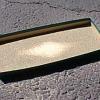
X-Ray Spectra
Source Institutions
In this activity, learners use simple materials to simulate the effect of X-rays in a safe way. Learners place a piece of window screen over a box and a cardboard pattern on top of the screen.

Sun Prints
Source Institutions
This activity uses a special paper that can create images with exposure to the Sun. Collect objects of different shapes and sizes and use them to make interesting patterns on your sun print.
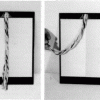
Gray Step
Source Institutions
In this activity, learners discover that it's difficult to distinguish between two different shades of gray when they aren't separated by a boundary.
Diffraction Between Wax Blocks
Source Institutions
In this optics activity, learners explore diffraction by adding wax blocks to a ripple tank. The wedge-shaped blocks act as obstacles that the wave must bend around.

Anti-Gravity Mirror
Source Institutions
In this demonstration, amaze learners by performing simple tricks using mirrors. These tricks take advantage of how a mirror can reflect your right side so it appears to be your left side.
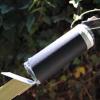
Periscope
Source Institutions
In this activity, learners construct a device that allows them to look over ledges or around corners.
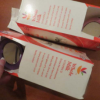
Telescoping Periscope
Source Institutions
In this activity, learners explore the many uses of periscopes and how this simple device was designed and is used in many applications.
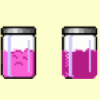
See It to Believe It: Visual Discrimination
Source Institutions
In this activity (12th on the page), learners investigate their ability to discriminate (see) different colors.
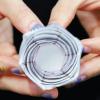
Space Origami: Make Your Own Starshade
Source Institutions
In this activity, learners cut out and fold their own collapsible origami starshade, an invention that shields a telescope's camera lens from the light of a distant star so that NASA scientists can ex
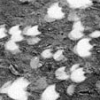
How to View a Solar Eclipse
Source Institutions
This is an activity to do when there is a solar eclipse!

The Thousand-Yard Model
Source Institutions
This is a classic exercise for visualizing the scale of the Solar System.
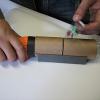
Camera Projector
Source Institutions
In this activity (posted on March 14, 2011), learners follow the steps to construct a camera projector to explore lenses and refraction.
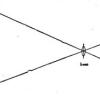
Bring it into Focus
Source Institutions
In this activity (page 2 of PDF), learners play with a lens and a piece of paper to focus an image on the paper. Learners look at different things, and see how the lenses affect the image.

Safe in the Sun
Source Institutions
In this activity on page 13 of the PDF, use a special plastic card that has been painted with a chemical that changes color when it is in UV light.
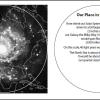
Our Place in Our Galaxy
Source Institutions
In this fun and simple hands-on astronomy activity, learners construct a model of our place in the Milky Way Galaxy and the distribution of stars, with a quarter and some birdseed.
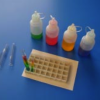
The Liquid Rainbow
Source Institutions
Learners are challenged to discover the relative densities of colored liquids to create a rainbow pattern in a test tube.
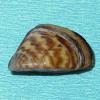
Mussel Your Way Through Photosynthesis
Source Institutions
Using zebra mussels (Dreissena polymorpha), elodea and an indicator dye, learners study the role of light in photosynthesis.
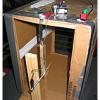
Clap Sensor: Build a Sound Sensor Using a Pico Cricket
Source Institutions
This activity requires a Pico Cricket (tiny computer). Learners work on designing and building a sound sensor out of household materials, like plastic wrap and cardboard.

Tissue Paper Spray Art
Source Institutions
In this activity, learners observe color mixing and absorbency using colored tissue paper and spray bottles.

Disappearing Crystals
Source Institutions
Learners experiment with water gel crystals, or sodium polyacrylate crystals, which absorb hundreds of times their weight in water. When in pure water, the water gel crystals cannot be seen.
